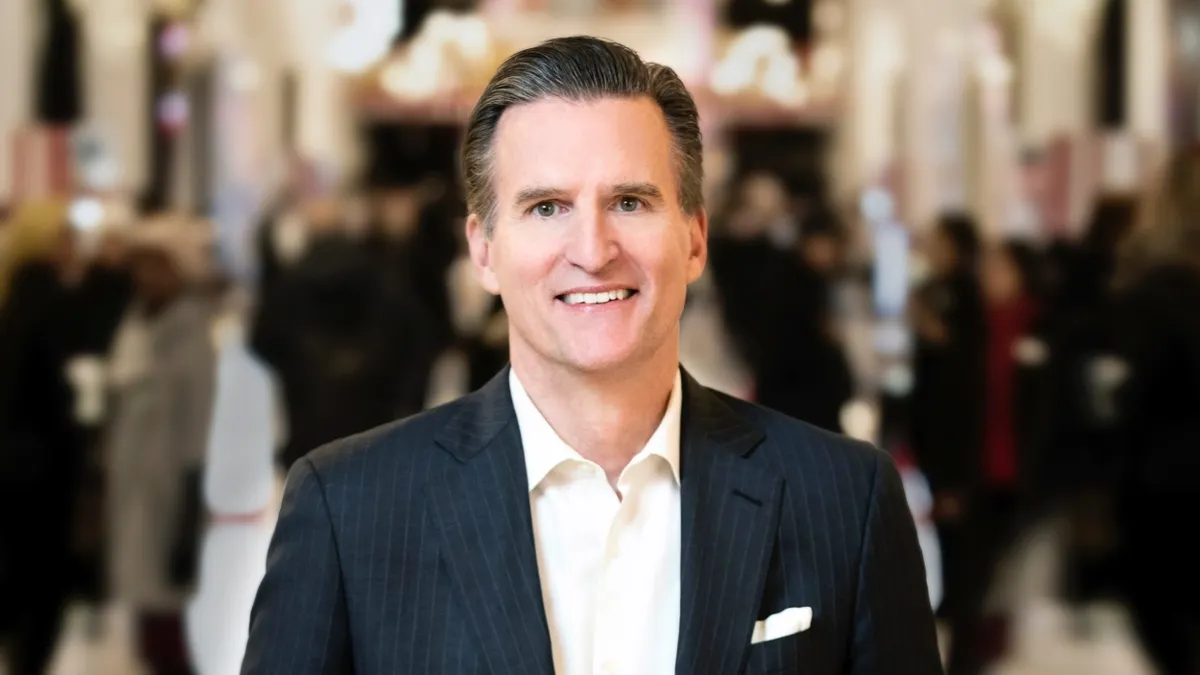After four decades at Macy’s in a career that culminated in taking the top spot, CEO Jeff Gennette, who also serves as chairman of the board, will retire early next year, the department store said Wednesday.
Bloomingdale’s CEO Tony Spring will take his place, according to a company press release. The company has commenced an internal and external search for someone to lead Bloomingdale’s, which is owned by Macy's, a spokesperson said by email.
In a further shakeup, Macy’s Chief Financial Officer Adrian Mitchell will add the role of chief operating officer to his responsibilities. In the combined role, Mitchell will lead the stores, technology and supply chain teams, in addition to his existing finance and real estate duties.
In picking Bloomingdale’s chief executive to take over for Gennette next year, Macy’s has stuck with its tradition of finding its top leadership from within.
When Gennette was tapped to be CEO of Macy’s six years ago, he had worked his way up the ranks. He began his career there in 1983 as an executive trainee at Macy’s West in San Francisco. By 2009 he was Macy’s chief merchant (starting when it was still Federated Department Stores) and began serving as president of the company in 2014. He took over from longtime Macy’s (and Federated) CEO Terry Lundgren in 2017.
Spring similarly has spent 36 years at Bloomingdale’s, starting as an executive trainee in the White Plains, New York store in 1987. For more than 20 years, he worked with the retailer’s previous CEO Mike Gould, who was Spring’s mentor, according to Mark Cohen, director of retail studies at Columbia University’s Graduate School of Business.
In its release Wednesday, Macy’s noted Spring’s “exceptional brand-building and merchandising talents.” Last week, the upscale department store tapped its first-ever chief merchandizing officer. That could now be seen as a hint that Spring might be leaving, given that he’s been serving as the retailer’s de facto chief merchant. Spring has also worked to position the Macy’s Bluemercury unit as a successful skincare, cosmetics and spa business, Macy’s said.
Nevertheless, the shift represents an opportunity for much-needed change at the Macy’s banner, according to GlobalData Managing Director Neil Saunders.
“While Macy’s has no shortage of strategies and is great at talking a good game, it consistently fails to execute well,” he said in emailed comments. “As a consequence, it has not arrested the decline in relevance and market share. Current management must shoulder some of the blame for this, not least because it has a habit of ignoring hard truths about the business and often seems disconnected from the realities on the ground in both stores and the wider retail market.”
Still, Gennette has a string of successes to his credit, including the closure of a significant number of under-performing stores, e-commerce growth, partnerships like Toys R Us and a “nimble response to the pandemic,” according to Saunders.
“Our balanced view is that this adds up to a legacy of stabilizing the ship but falls quite a way short of advancing it,” Saunders said.
Columbia’s Cohen has a dimmer view of Gennette’s tenure, despite his track record navigating the challenges of the pandemic. Key Gennette initiatives like launching and growing the off-price Backstage business and betting on small-format off-mall stores are not a pathway to success, Cohen said by email.
“Macy’s has had a lack of effective leadership for many years. I didn't think Terry Lundgren was at all effective as its CEO and Jeff Gennette was no better,” he said. “Navigating Covid notwithstanding, Gennette has accomplished nothing in positioning this enterprise for the future. Hopefully Spring will bring some actual progressive thinking to the business.”
The timing is right for Gennette’s departure, according to Erik Gordon, professor at University of Michigan's Ross School of Business.
“He goes out with full honors for changing investor and vendor perceptions of Macy’s from a dinosaur stumbling in the dark to a retailer that has a chance of surviving in a smaller footprint,” he said by email. “There is a lot of work left, and the company could keep moving or could slide back into the danger zone. If he leaves in February, he leaves with credit for the turnaround. If he stays longer, he will be judged by another round of results that could be disappointing.”
But Cohen believes Macy’s would benefit from a quicker changing of the guard.
“Why wait a year?” he said. “The sooner this baton pass takes place the better.”
















